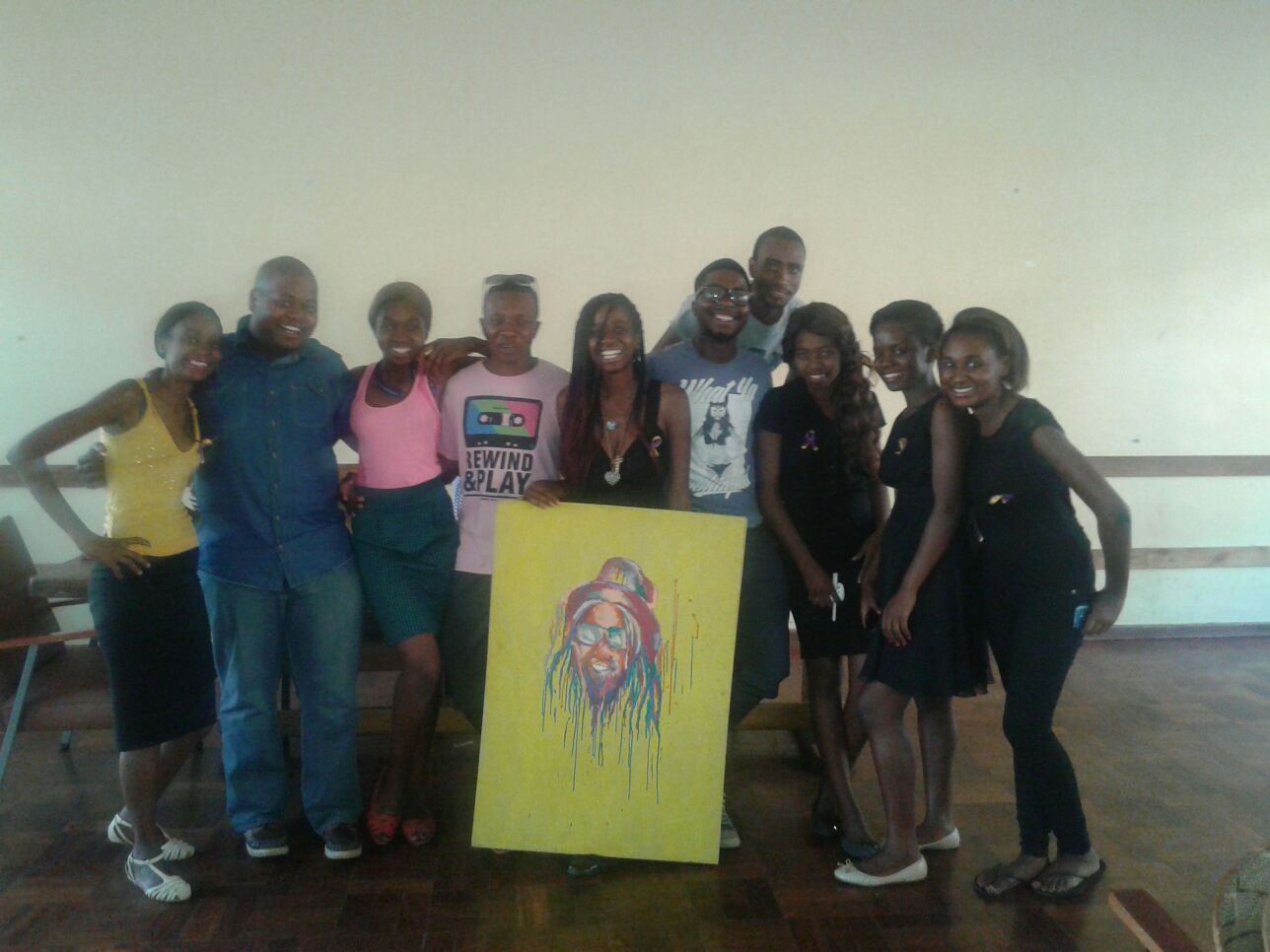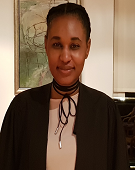
Gates Cambridge Scholar-Elect Sandile Mtetwa on her research on clean energy and setting up a women's empowerment organisation.
Some of the energy in rural communities is very toxic to human health. I want to focus on providing alternative means of getting clean energy which are not hugely expensive.
Sandile Mtetwa
Sandile Mtetwa faced more potential hurdles to her education than many, but she has risen to the challenge.
Sandile [2017], who is from Harare, Zimbabwe, fell pregnant before she started her university studies, but has not only set up a project aimed at empowering other young women, but gone on to be accepted onto a master’s course at the University of Cambridge to study Chemistry.
She begins the course in the autumn and her research will focus on improving the performance of solar-powered energy. Working at the nanoparticle level, she aims to create nanoparticle support-based composites with metal-organic frameworks to boost the lifetime of photo active materials and so increase power generation.
Her interest in clean energy was ignited during her undergraduate studies which took place at a time of frequent power cuts in Zimbabwe.
Sandile is the youngest of four siblings and always had a lot of support for her studies from her parents. Her mother is a teacher and Sandile attended the primary school where she taught. Her father is a publisher and editor and always encouraged her to read. “I grew up surrounded by books,” she says.
She went to a selective all girls secondary school in the city centre. She was a good all round student, but excelled in science, particularly maths. “Growing up I always thought I would be a doctor so I put more effort into sciences,” she says. “From the age of eight I wanted to find a cure for TB as there were a lot of TB outbreaks when I was growing up. It really struck me that a lot of people were dying due to poor treatment or a lack of treatment.”
Sandile had applied to the University of Zimbabwe to do veterinary science, but discovered she was pregnant. Although she started her course, she realised it was not what she wanted to study and that she preferred research into potential treatments to the world of hands-on medicine. She took a gap year and began working as a teacher in a local high school to support her daughter before returning to university to do a chemistry degree.
Young mother
Sandile lived at home during this time and received a lot of support from her parents for which she is very grateful. She faced a lot of abuse and violence from the father of her baby and as a result of that she met other young women in similar situations. “They were going through the same things, but unfortunately they didn’t have the support system I had,” she says. “They had no-one to turn to. I realised I wanted to provide that support system.”
Sandile decided to start an organisation which would do precisely that. In her third year of undergraduate studies when she was doing an internship at a research institute, she set up the Simuka-Arise Initiative as a university-based community project, meaning she would have access to student volunteers. It is now expanding, moving out of the university and into the community.
The organisation also works with young men who are encouraged to come along and discuss issues and join in campaigns and awareness-raising sessions. Last year it put together a campaign against domestic violence.
It has three main strands: economic, social and academic empowerment of young women and partners with other organisations to ensure it has a greater impact.
Women and children are either referred to the organisation or come through word of mouth. So far it has raised money to take four children to school, pay for their tuition and ensure they don’t have any gaps in their learning.
Sandile is also working on a workshop for girls who have just finished high school and are preparing to go to university. She is keen to encourage more women into science. Other projects include working with the government on women’s economic empowerment and providing girls with sanitary products.
At the same time, Sandile has been pursuing her own academic career and in the third year of her chemistry degree, in 2014/2015, she had a lightbulb moment. She was doing a one-year internship at a research institute, working with spectroscopic instruments on the characterisation of polymers and contributing to discussions about future products. Zimbabwe was experiencing a lot of power cuts at the time, so much so that it was being labelled “the dark country”. Sandile became interested in research into affordable clean energy. “Some of the energy in rural communities is very toxic to human health. I wanted to focus on providing alternative means of getting clean energy which were not hugely expensive,” she says.
She graduated in 2016 and has been working as a teaching assistant in the Department of Chemistry at the University of Zimbabwe as well as on the Simuka-Arise Initiative. She applied to the University of Cambridge and to Gates Cambridge last year, saying she was drawn to the course she is doing due to her supervisors’ focus on increasing the stability and performance of nano materials that harness solar-driven hydrogen.
When she comes to Cambridge she will have to leave her now five-year-old daughter behind. She has never been away from home before. She hopes that she will go on to do a PhD and sees the chance to do her MPhil as an important stepping stone. She feels the Gates Cambridge Scholarship is a good fit for her academic and wider social interests. “I am very excited about the scholarship and the opportunity to meet other scholars,” she says.
*Picture credit: One of Simuka-Arise Initiative's fundraiser activities: an Art Auction which raised funds to send four children from single mother households to school.

Sandile Mtetwa
- Alumni
- Zimbabwe
- 2017 MPhil Chemistry
2018 PhD Chemistry - Lucy Cavendish College
As a research scientist in Chemistry it is my desire that in a few years, the world population that currently does not have access to clean energy will be streamed down noticeably. My PHD work aims to contribute to that goal.I believe that several renewable resources should be utilized to ensure the adequate distribution of energy around the globe and solar-driven hydrogen is one of the solutions. An efficient and cost-effective way for harnessing sunlight and driving the evolution of hydrogen is critical to achieving a hydrogen economy soon. My work will be focused on a metal-organic framework (MOF)-based hybrid system that is tailormade for long charge carrier lifetime. This I will do by synthesizing: a suitable organic linker; as the photosensitizer, a robust and inexpensive semiconductor and exploring the optimum co-catalyst loading for effective reduction of hydrogen ions to molecular hydrogen. I will also consider the subsequent storage of hydrogen after its evolution by the same system. Having been a Gates Scholar during my MPhil I became privy to a wide range of opportunities and I met a wonderful network of scholars who are so passionate about their individual areas of study and are always motivated to do better. I am so honored to continue to be part of a community that continuously works towards improving peoples' lives in different parts of the world.
Previous Education
University of Zimbabwe
University of Cambridge












